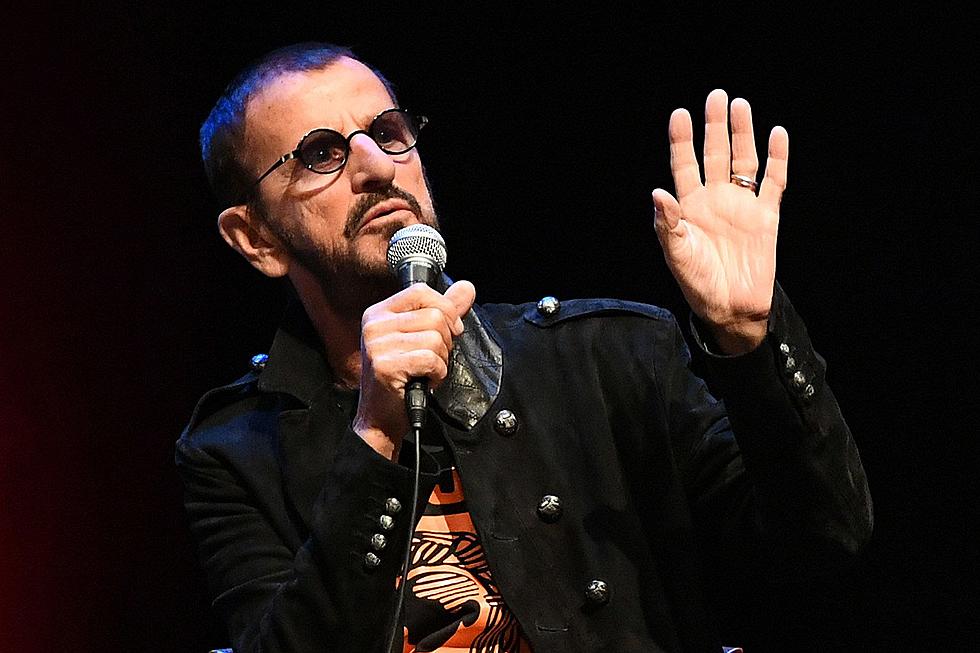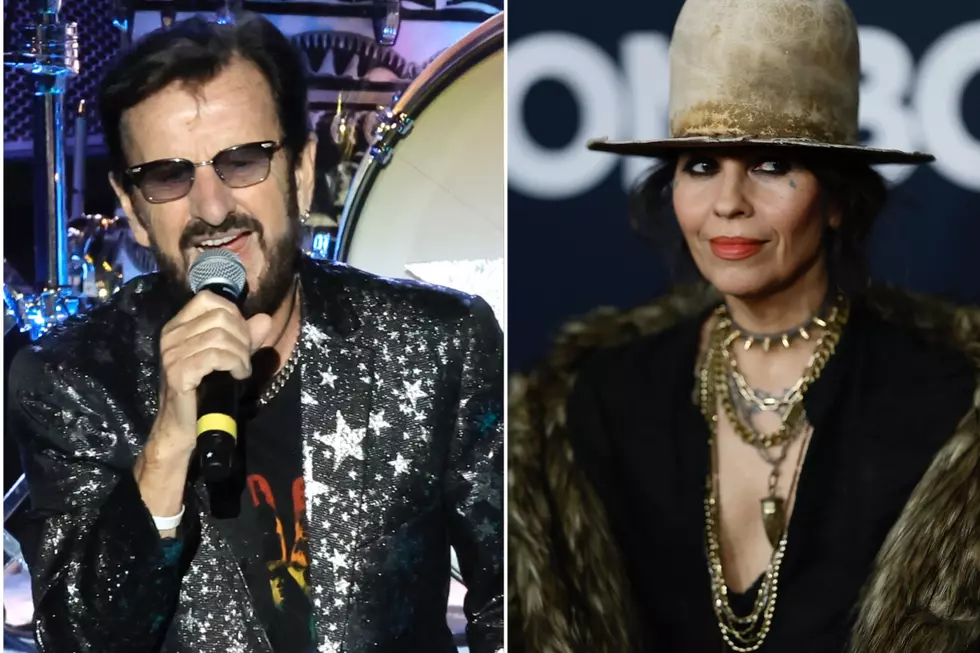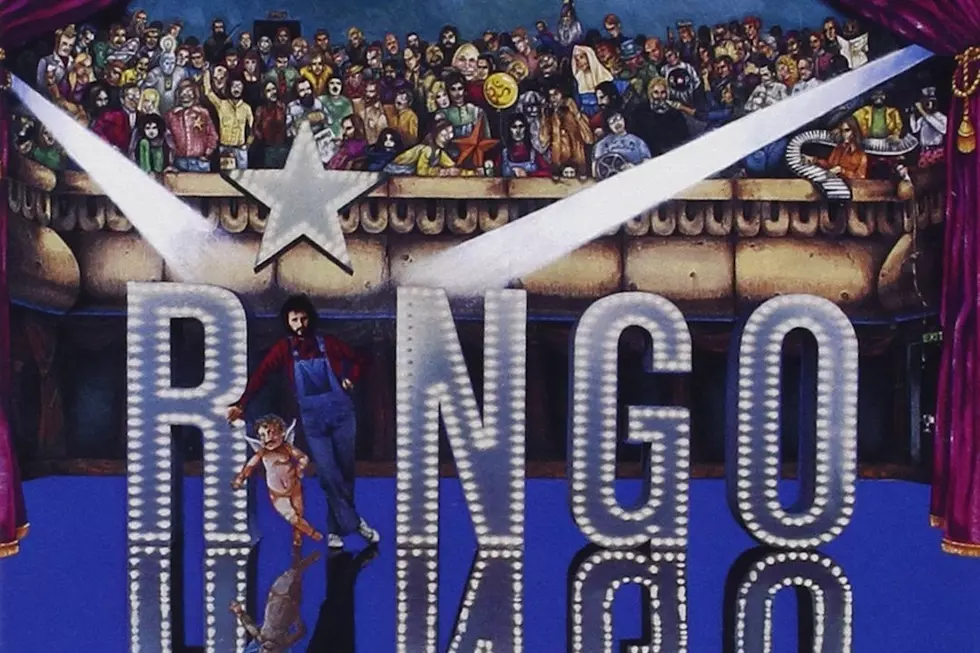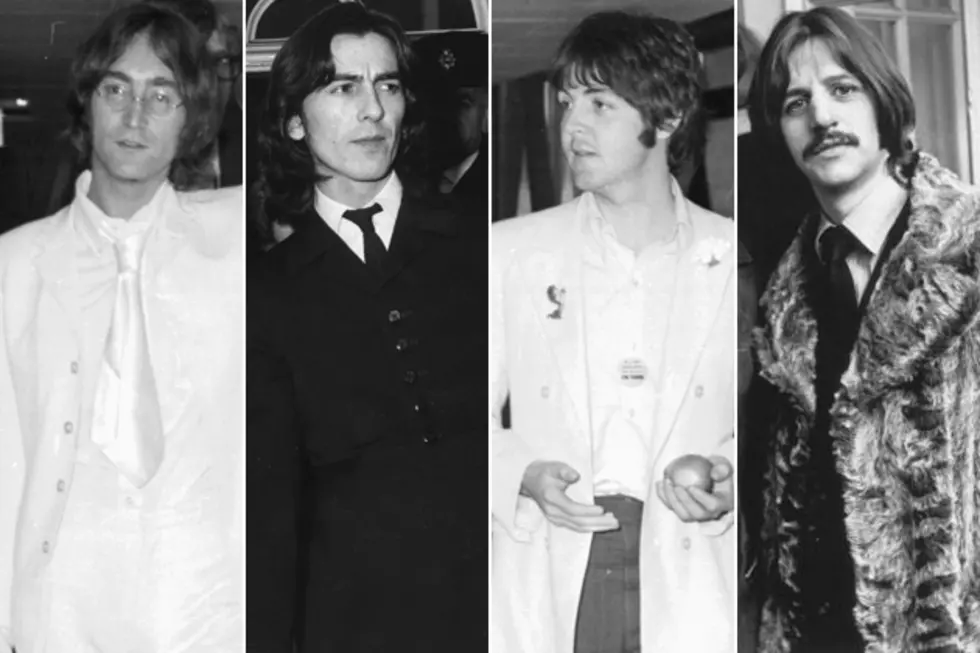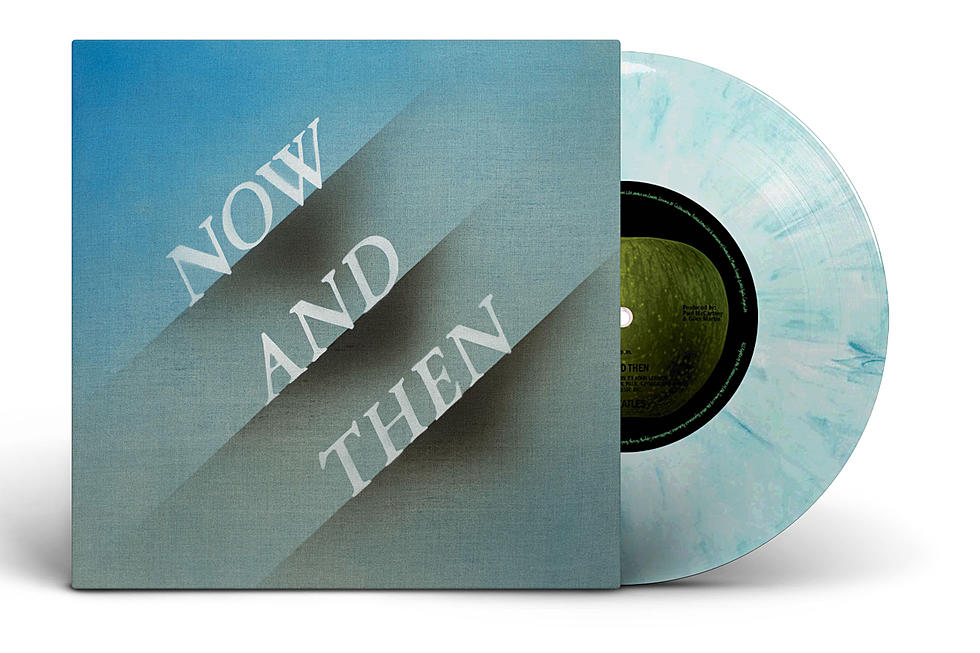
When Ringo Starr Tried, and Failed, to Refocus on ‘Bad Boy’
Ringo Starr's solo career began to fade just as talk of a Beatles reunion hit a fever pitch. He tried to fight off these baseless rumors as best he could by continuing to work. But the questions never stopped, while his album sales continued to sag.
Ultimately, Starr descended into the bottom of a wine bottle. By the time Bad Boy arrived in the U.K. on April 21, 1978, he was very much living up to the album's title. Starr just seemed lost, personally – and musically.
"I was sliding down; I wasn’t taking enough interest," Starr said in a 1998 talk with Paul Du Noyer. "It wasn't that every day was a bad day, but I just wasn't doing anything. And as the years went on I did less and less – and, if I did do anything, it was with very little thought."
He'd tried another all-star gambit with 1976's Ringo's Rotogravure, in an obvious attempt to recapture the magic of 1973's multi-platinum Ringo, but failed to chart in his native U.K. Starr then chased the disco trend on 1977's Ringo the 4th, with disastrous results: That album not only missed the U.K. charts but stalled out at a paltry No. 162 in America.
Starr and long-time producer Vini Poncia decided to pare down to a core group of collaborators for the subsequent Bad Boy, while making a welcome return to more standard fare. Starr co-wrote two of the 10 tracks, while covering songs from Allen Toussaint (the lead single "Lipstick Traces"), Louis Armstrong (the title track), the Small Faces ("Tonight"), jazz singer Michael Franks ("Monkey See – Monkey Do") and the Supremes ("Where Did Our Love Go"). Sessions were held over a brisk 10 days in November 1977 in Vancouver and the Bahamas.
A gala all-star television special was also scheduled to coincide with the album's release. Simply titled Ringo, the NBC production aired five days after Bad Boy arrived, and was loosely based on Mark Twain's The Prince and the Pauper. Ringo played three new songs: the album-opening original "Who Needs a Heart," a cover of "Heart on My Sleeve" by the Irish duo Gallagher and Lyle, and "A Man Like Me" from Ronnie Lane collaborator Ruan O'Lochlainn. Guest stars included Carrie Fisher, Vincent Price, Angie Dickinson and George Harrison, among others.
Listen to Ringo Starr Perform 'Lipstick Traces'
It should have worked. Bad Boy was more delightfully idiosyncratic than the sleek dud that proceeded it – and the songs were certainly more warmly produced. Unfortunately, there's something essential missing from the studio performances, despite the album-long presence of aces like keyboardist Dr. John, bassist Dee Murray from Elton John's band and guitarist Jimmy Webb. They seemed to be inadvertently echoing Ringo's basic detachment.
"After Ringo and maybe [the 1974 follow up] Goodnight Vienna, I started tearing it up and turning up less and less," Starr bluntly admitted in a 1992 talk with Rolling Stone. "That's going to show in anyone's art. For a lot of those albums, I was just in a hurry to get home – or, more often, someone else's home."
Besides, all anybody wanted to talk about was the Beatles, anyway. Starr, put simply, was stuck.
"Some days you'd like to go, 'Oh shit, I'd like to do this on my own and just for it to be me, not [as an] ex-Beatle,'" Starr told Elliot Mintz in 1976. Still, he couldn't shake their towering legacy. "Someone pointed out that, since we broke up, the only way we can all go is downhill – because, individually, none of us will attain what we attained together," Ringo added. "It wasn't derogatory or anything, but it's a fact of life, you know."
This made promoting projects like Bad Boy into a Faustian bargain. Starr hoped to discuss his latest album and show, but – as a badly fading solo star – was only garnering these interviews because of a long-gone association. Promotional appearances consistently turned into probing dissections of the obstacles keeping his old band apart, rather than what Starr was actually up to these days. (It didn't help that promoter Sid Bernstein had made a whopping $230 million offer if they got back together in 1976.)
Ringo rotated between trying to play the part of the affable ex-Beatle, or simply trying to play it all off. Asked by Connie Collins what had changed with fans by 1978, Starr deadpanned: "A few crowds, but no mobbing," adding that he didn't miss the days of Beatlemania. "No," he joked, "I can't run that fast anymore."
Still, the toll all of this was taking quickly became clear, as Starr began constantly wearing sunglasses, even during interviews on indoor sets. This served to disguise his real feelings, of course, but also his increasing reliance on booze. Always prone to a certain sadness, Ringo Starr seemed to be spiraling into a dark depression, right before television viewers' eyes.
Listen to Ringo Starr Perform 'Who Needs a Heart'
He'd already snipped off the tie of one interviewer during an obviously drunken turn on television. (Into the late '70s, Starr was said to be downing as many as 16 bottles of wine a day.) A few years later, Starr memorably slurred his way through an appearance with John Davidson.
Ringo subsequently admitted that everything – including his work – had become secondary to his lifestyle, which tended to revolve around partying with pals after his 1975 divorce from Maureen Cox. "Someone said, 'We weren't musicians dabbling in drugs and alcohol; now, we were junkies dabbling in music,'" Starr told Paul Du Noyer.
Paralyzed by it all, he never booked any dates in support of Bad Boy. "I was asked to go on tour in 1978 and talked to a lot of people about it," Starr told Gary Graff in 1989, "but I just couldn't get around to it, I suppose. We just talked ourselves into oblivion or something."
As Ringo lost interest, so did even his core supporters: Bad Boy never got past No. 129 in the U.S., and it again failed to chart at all in Starr's home country. He was promptly dropped by Polydor in the U.K., and then the Epic subsidiary Portrait in the U.S., leaving Starr without a label for the first time ever. He didn't release another album until 1981's Stop and Smell the Roses; the follow-up Old Wave initially went unheard – despite the presence of producer Joe Walsh – because nobody wanted to release it.
"I was out of shape," Starr told the New York Times in 1989. "My record sales were going downhill, and I just went along, not caring. You have breaks from that; you're not totally deranged every day of your life. I was entirely straight when I made the Old Wave album. You straighten up for a bit, but you can't hold onto it."
By the mid-'80s, Starr had apparently added other drugs to his alcoholic regimen, completely falling off the map. He finally returned with the first All-Starr Band a few years later, but only after a badly needed trip to rehab in 1988.
Rock's Most Disappointing Albums
You Think You Know the Beatles?
More From Ultimate Classic Rock
